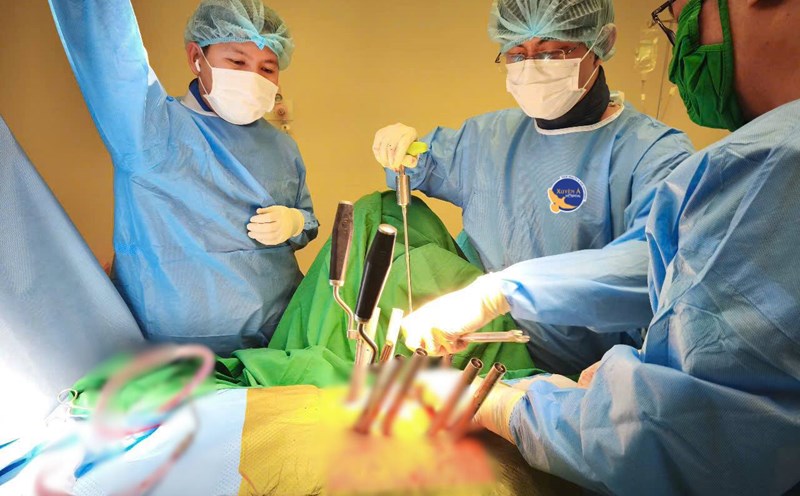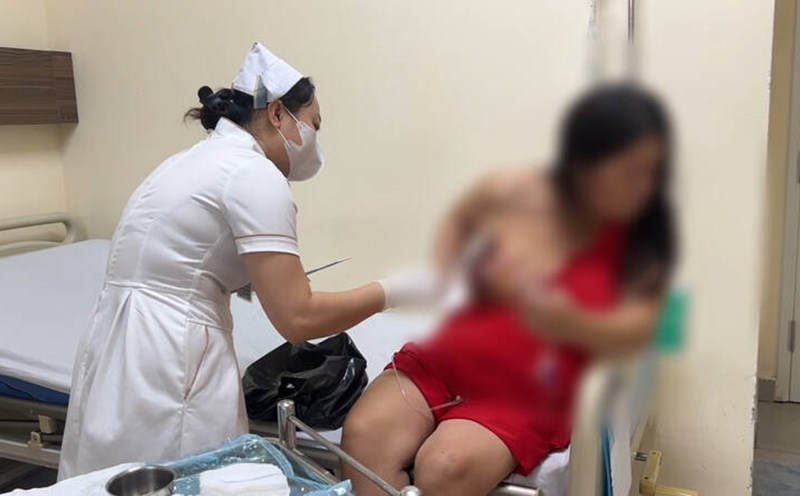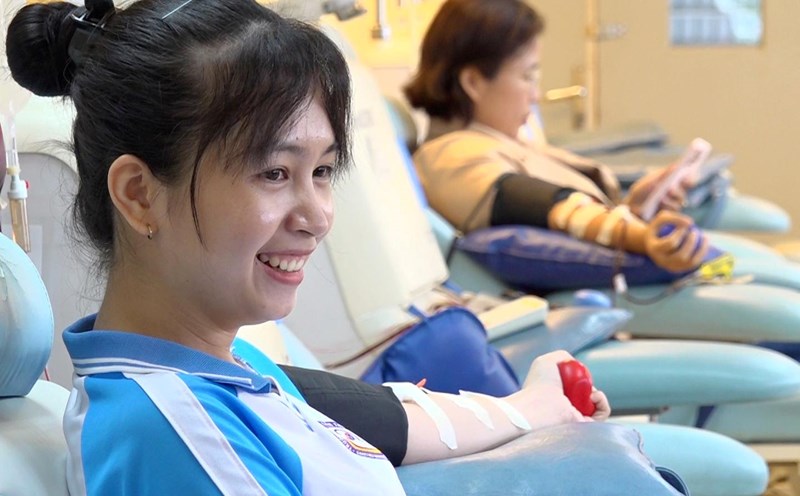On July 18, South Saigon International General Hospital informed the unit receiving emergency care for a 61-year-old female patient who was stung by a bee and had about 70 stings while exercising near her home.
The patient had a history of high blood pressure, was admitted to the hospital in a state of grade 3 anaphylactic shock, complications of acute liver failure, acute renal failure, acute respiratory failure and apnea. These are all life-threatening conditions if not intervened quickly.
The patient was taken to the hospital just 40 minutes after being stung by a bee. Patients are treated with continuous blood filtration; mechanical ventilation, multi-organ support; hem dynamic support (a medical intervention to maintain or improve the patient's blood flow and blood pressure when the circulatory system is not working effectively) and infection control.
After 10 days of active treatment, the patient was conscious, had the endotracheal tube removed and discharged from the hospital.
According to Dr. Lai Thanh Tan - Department of Intensive Care - Emergency at Nam Sai Gon International General Hospital, toxins from the weasel can cause acute allergic reactions, leading to anaphylactic shock, kidney failure, Thanh mau and multiple organ failure. In particular, when burned multiple stains at the same time, the amount of toxins in the body can reach the dangerous threshold.
Regarding how to deal with a bee stings, it is necessary to move the area where the bee is in the bee immediately; do not scratch or mold the bite yourself; remove any remaining relatives; rinse with saline or under water; apply cold compress.
If there are signs of difficulty breathing, dizziness, nausea, swelling in the bite, the patient needs to be taken to the nearest medical facility immediately.











